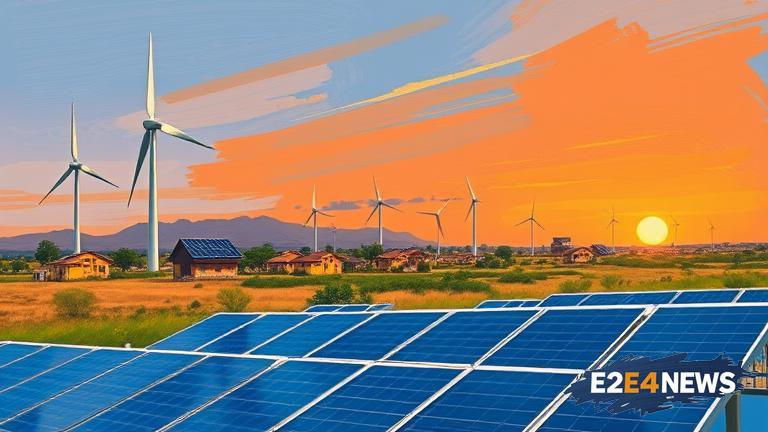The African continent is witnessing a significant shift towards renewable energy, driven by the need to address the pressing issues of energy access, climate change, and sustainable development. With many countries still struggling to provide electricity to their populations, renewable energy has emerged as a viable solution. Solar and wind power are becoming increasingly popular, with countries like South Africa, Egypt, and Morocco leading the way. The cost of renewable energy is decreasing, making it more competitive with fossil fuels. This trend is expected to continue, with the International Energy Agency (IEA) predicting that renewable energy will account for 60% of the world’s power generation by 2050. Africa’s renewable energy sector is attracting significant investment, with many international companies and organizations committing funds to support the development of solar and wind farms. The African Development Bank has pledged to invest $25 billion in renewable energy projects across the continent by 2025. The European Union has also announced plans to support the development of renewable energy in Africa, with a focus on solar and wind power. China is also playing a significant role in Africa’s renewable energy sector, with many Chinese companies investing in solar and wind farms. The benefits of renewable energy are numerous, including reducing greenhouse gas emissions, improving air quality, and creating jobs. Renewable energy can also help to reduce poverty and improve healthcare outcomes, by providing energy access to remote and underserved communities. However, there are still significant challenges to be addressed, including the lack of infrastructure and the high upfront costs of renewable energy projects. Many African countries also lack the necessary policies and regulations to support the development of renewable energy. Despite these challenges, the future of renewable energy in Africa looks bright, with many countries committed to transitioning to a low-carbon economy. The African Union has set a target of generating 300 gigawatts of renewable energy by 2030, which is expected to create thousands of jobs and stimulate economic growth. The private sector is also playing a crucial role in driving the growth of renewable energy in Africa, with many companies investing in solar and wind farms. The use of renewable energy is also expected to improve energy security, by reducing dependence on imported fossil fuels. This will help to stabilize the energy market and reduce the impact of price volatility. In addition, renewable energy can help to promote economic development, by providing energy access to businesses and industries. The development of renewable energy in Africa is also expected to have a positive impact on the environment, by reducing greenhouse gas emissions and mitigating climate change. Overall, the renewable energy revolution in Africa is gaining momentum, with many countries committed to transitioning to a low-carbon economy. With the right policies and investments in place, Africa can become a leader in the global renewable energy market, creating jobs, stimulating economic growth, and improving the lives of millions of people.





